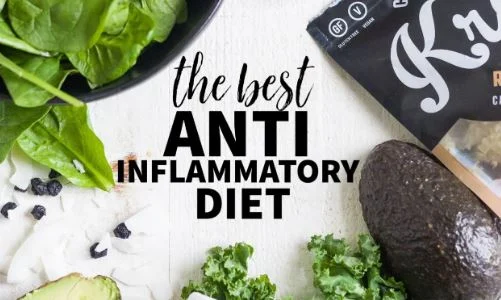Healthy eating, It’s not that difficult.
There are a lot a diet plans going around promising weight loss, a better quality of life and longevity. What most people don’t know is that those diets only have anecdotic evidence, meaning that scientific studies have either disapproved them or lack of clinical proof to recommend. That’s why, in this piece, we’ll discuss what I based on research can support.
Anti-inflammatory diet
There is a diet really important for patients going through chronic illnesses, acute inflammation, and for general use daily, which is referred to as an “anti-inflammatory diet.” The immune system relies on several factors to work correctly, so there must be a proper balance of these for the immune system to respond at its best capacity. First, we must look at the micronutrients such as iron, zinc, manganese, nickel, copper, and cobalt, which are strictly related to the innate and the acquired immunity[1] [2]. In terms of vitamins, besides they’re correlation as cofactors in biochemical reactions, they also protect the mucous membranes such as those in the gut and the respiratory system some of them would be vitamin A, D, E, C, B6, B9, and B12 [4].
So, let’s get into their properties proper of the anti-inflammatory diet:
- Selenium: An essential antioxidant for an optimal immune response. Its deficiency affects the production of antibodies. Its supplementation normalizes the immune response according to age. Its deficit causes a lowering in the production of immunoglobulins and makes it difficult for the immune cells to go where they are needed.
- Copper: sustains an intracellular antioxidative equilibrium, which suggests it’s essential in the inflammatory response. Its adequate intake supports the response of the T1 lymphocytes. Its deficit decreases the lymphocyte response and its proliferation and the production of interleukin two, which favors the respiratory infections.
- Zinc: it has a direct effect on all the immune cells and has an immediate impact on macrophages, especially in their ability to perform phagocytosis. It supports the T lymphocyte response to an infection and helps maintain the natural barriers of the body, such as skin and mucous tissue intact. Its deficiency leads to an atrophy of the thymus where T cells are created, diminishing the cytotoxicity of the cells and the activity of NK lymphocytes.
- Iron: Essential for cellular differentiation and growth; it’s a compound in critical enzymes that favor the function of the immune cells. It participates in the regulation and production of cytokines[5][6].
Vitamins and the anti-inflammatory diet:
- B6, Folic acid, B12: They act in the immune system by maintaining the homeostasis of the cell by being involved in the nucleic acids (the basis of our DNA) and synthesis of proteins. They immunomodulate the activity of the Natural Killer cells and T lymphocytes.
- Vitamin C: Significant because if its role in decreasing oxidative stress in the cell stimulates the white blood cells. It has a role in the antimicrobial activities of immune cells.
- Vitamin A: Important role in the development of antimicrobial antibodies. Its deficit deteriorates the natural immunity of the body induces inflammation. It enhances actual inflammatory responses that are active in the body and affects the immune response against extracellular pathogens.
- Vitamin E: It boosts the immune response through T1 lymphocytes. Its supplementation in adults enhances the proliferation of T cells and reduces oxidative stress.
- Vitamin D: participates in cellular proliferation, enhancing the natural immunity to differentiate monocytes to macrophages. Its deficit is correlated with increased chances to have infections of any kind because of the impaired innate immunity. It enhances the immune response of T2 lymphocytes[7][8].
How to apply the anti-inflammatory diet on our daily lives?
- Good hydration.
- Take at least five portions of fruits and vegetables a day.
- Eat cereals, whole grain products, and dried vegetables (avoid mixing with high caloric index carbohydrates).
- Moderate consumption of animal origin meals: Beef should be taken 3-4 times a week, red meat once per week, other options are lamb, deer or pork), fish should be taken 2-3 times a week, Egg can be made 3-4 times a week. For the preparation of these meals, you should consider cooking beef and fish in low-fat ways as its roasted, stew, or grilled.
- Dried nuts, seeds, olive oil: peanuts, almonds, nuts, pistachios. Sunflower and pumpkin seeds are okay as long as you avoid having them fried, sweetened or salty.
- Avoid pre-cooked foods, fast foods, and sugary drinks: these are full of “empty carbohydrates,” fat, and chemicals to preserve them.
INTERMITTENT FASTING (IF)
It has been around for some time now; there many ways to apply it, and we’ll discuss the most appropriate ones based on the scientific literature. IF can help lose weight as the food we eat is started to get metabolized in our intestines by many enzymes that break meals into different molecules that end up in our bloodstream. Carbohydrates are particularly quick to be broken into sugars, which is the primary “fuel” for our cells but excess sugars and up becoming fat and stored in our fatty tissues. During fasting times, our insulin levels go down and allow the adipose tissue to release its fat, and that then becomes the source of energy. And that is one of the main objectives of IF, try to lower your insulin levels, so fat is burned.[9]
We all have a circadian rhythm in which our bodies have adapted to daytime; there’s food and nighttime is for sleep. Nighttime eating has also been associated with a higher risk of diabetes and obesity. The most known way to do intermittent fasting is with the 14-16 hour fasting and 8-10 hours when you can have your meals, of course, healthy meals. During the eating period, you can have even up to 3 meals but without exceeding your daily calorie intake. This kind of diet isn’t appropriate for everyone, for example, people with advanced diabetes or on diabetes medications, people with eating disorders like anorexia or bulimia, pregnant or breastfeeding women. Some information for better results avoids sugars and refined grains; eat fruits, vegetables, beans, lentils, whole grains, lean proteins, and healthy fats (a sensible, plant-based Mediterranean style diet. Let your body burn fat between meals, so don’t snack, be active throughout the day, build muscle tone. Consider a simple form of intermittent fasting; limit the hours of the day when you eat and for better effects do it early in the day and not before bedtime. Avoid having snacks or eating at nighttime[10].
A good question would be: what if a get hungry? There are ways to suppress hunger during IF, here are some of them:
- Eat high-fiber foods, such as nuts, beans, fruits and vegetables, and high protein foods, including meat, fish, tofu, or nuts, during your eating window. Chewing high-fiber gummies can also help.
- Drink lots of water. People tend to think they’re hungry when they are just thirsty.
- Go for black coffee or tea, or cinnamon or licorice herbal teas. These beverages may have appetite-suppressing effects.[11]
Advice like these will help you, your mind, and your body and will compliment your treatment here at BioXcellerator, always expecting the best results and willing to help you have a better lifestyle for the rest of your life and avoid avoidable complications and diseases associated with our eating habits. Science by humans for humans.
Camilo White C. MD
BioXcellerator, Advanced Cellular, and Regenerative Medicine.
[1]Wang C, Zhang R, Wei X, Lv M, Jiang Z. Metalloimmunology: The metal ion-controlled immunity. Adv Immunol. 2020; 145:187-241. DOI: 10.1016/bs.ai.2019.11.007. Epub 2019 Dec 9.
[2] Gombart AF, Pierre A, Maggini S. A Review of Micronutrients and the Immune System-Working in Harmony to Reduce the Risk of Infection. Nutrients. 2020 Jan 16;12(1). pii: E236. doi: 10.3390/nu12010236.
[3] Wang C, Zhang R, Wei X, Lv M, Jiang Z. Metalloimmunology: The metal ion-controlled immunity. Adv Immunol. 2020; 145:187-241. doi: 10.1016/bs.ai.2019.11.007. Epub 2019 Dec 9.
[4] Gombart AF, Pierre A, Maggini S. A Review of Micronutrients and the Immune System-Working in Harmony to Reduce the Risk of Infection. Nutrients. 2020 Jan 16;12(1). pii: E236. doi: 10.3390/nu12010236.
[5] Segurola H, Cárdenas G, Burgos R. Nutrients e Inmunidad. Nutr Clin Med. 2016. 10 (1). 1-19.
[6] Maggini S, Wintergerst E, Beveridge S, Hornig D. Contribution of selected vitamins and trace elements to immune function. Proceedings of the Nutrition Society. 2008; 67
[7] Segurola H, Cárdenas G, Burgos R. Nutrients e Inmunidad. Nutr Clin Med. 2016. 10 (1). 1-19.
[8] Maggini S, Wintergerst E, Beveridge S, Hornig D. Contribution of selected vitamins and trace elements to immune function. Proceedings of the Nutrition Society. 2008; 67
[9] https://www.health.harvard.edu/blog/intermittent-fasting-surprising-update-2018062914156
[10] https://www.healthline.com/nutrition/6-ways-to-do-intermittent-fasting
[11] https://www.today.com/health/how-lose-weight-intermittent-fasting-16-8-diet-t132608


